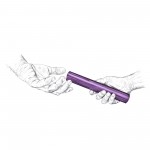Who told you that size does not count? I would like to know why so many candidates still seem to believe that size doesn’t matter.
If I told you that it takes a headhunter 15-20 seconds to read your resume, then hit Delete or Save on the keyboard, would you think that a two page resume is more attractive than a nine page CV? I thought so.
The British economist F.E. Schumacher used the phrase “Small is Beautiful” when he published his collection of essays exactly 40 years ago. Tom Sorensen, an executive search headhunter in 2013, says: “A Short Resume is Beautiful”.
Small and Short is Beautiful is used to champion a two page resume. Don’t believe that bigger is better.
Résumé is a French word for an outline or summary. The Latin word Curriculum Vitae mean the course of life. In Thailand, we often hear “same same but different”. It is extremely important that you know when to use a resume and not a CV.
 There is only one purpose of a resume. It’s to get you an interview. It’s not to get you the job; it’s not the form you fill in with personal details on your first working day. The resume is your personal advertisement that is meant to excite the reader so much that they call you to come in for a meeting (interview).
There is only one purpose of a resume. It’s to get you an interview. It’s not to get you the job; it’s not the form you fill in with personal details on your first working day. The resume is your personal advertisement that is meant to excite the reader so much that they call you to come in for a meeting (interview).
When you create your personal resume, think like an advertising copywriter who must draw attention to their client’s product using very little space, being it an ad in the magazine or on a web site.
If you are on your first or second job, a one page resume will most likely be enough. As it also is for new graduates. But if you by now have been in business for many years you should have several good achievements to show in a list of bullet points. Two pages will then do just fine. If you like me started your career at the time we had no fax, no laptops or iPhone and when Simon and Garfunkel was hitting the UK charts with Bridge Over Troubled Water, then leave the first 15-20 years of your career to just two lines. Like: Several sales and marketing jobs in the travel and hospitality industry.
It is not necessary to include names and addresses of any referees. Reference-taking takes place only at the time where the employer has decided to offer you employment. At this time you should if requested be prepared to provide names, not your family or friends but people who have worked with you.
Though we love to know the reasons for leaving your jobs, in particular when you appear to be job hopping, you should be ready to answer these questions – but not in your resume, only when asked during the interview. Simply leave out any information about why you left a job.
If you have a degree, a bachelor, a masters or any degree relevant for the job you are applying, this should obviously be included under the headline Education. But do not enclose copies of your diplomas and certificates. Instead bring the copies along for the interview in the case the recruiter or HR Manager would like to check your educational credentials.
Any employer will like to see and learn about your most recent jobs and achievements, what relevance it has to the vacant position. First of all, your current or most recent job must be the first on the list under Work Experience. As number two on the list, your second most recent job and the list goes on like that.
You should not use Microsoft Excel or Microsoft PowerPoint for your resume; go for the standard and acceptable Microsoft Word document. This message is especially for accounting people who can’t live without Excel. But please, for your resume you should use Word.

